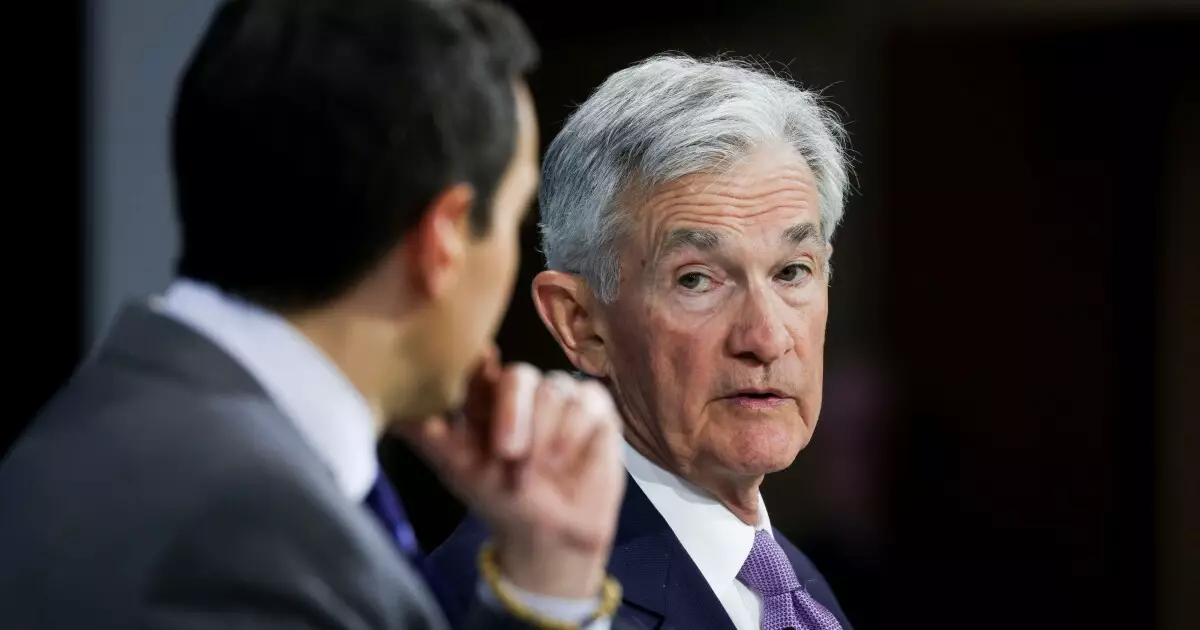In a recent interview at the New York Times’ Dealbook Summit, Federal Reserve Chair Jerome Powell addressed concerns regarding the potential emergence of a so-called “shadow chair” within the Trump administration’s economic framework. This notion, proposed by Scott Bessent—Trump’s Treasury Secretary nominee—raises questions about the influence of prospective leadership decisions on the Federal Reserve’s operations during Powell’s tenure, which is set to culminate in 2026. Contrary to Bessent’s assertion that such a shadow position could weaken Powell’s authority, the Fed Chair expressed confidence in his own role, dismissing the plausibility of such a power struggle.
The idea behind a shadow chair implies that preemptive announcements regarding Fed leadership could sway market expectations and render the incumbent chair less effective. However, Powell’s response highlighted a belief in the enduring nature of the Fed’s authority and the established norms of cooperation between the Treasury and the Federal Reserve. This sentiment underscores a critical aspect of monetary governance: the necessity of maintaining a stable and collaborative relationship during politically fluctuating times.
Powell firmly asserted the Federal Reserve’s commitment to political independence, a principle that has historically shielded the institution from direct political influence. He articulated that the Fed’s ability to make decisions unencumbered by political machinations is essential for ensuring that monetary policy serves the broader interests of the American populace rather than catering to specific political agendas. He noted, “What does being independent mean? It basically means we can make our decisions without them being reversed, other than by Congress.”
This independence is not merely an abstract ideal; rather, it offers the Fed the latitude to act decisively in the face of economic challenges, enabling it to prioritize stability and growth. Powell emphasized that the institution’s actions are rooted in economic reality and the current landscape, rather than being dictated by future political sentiments. As the Fed navigates turbulent economic waters, the ability to operate free of political pressure becomes even more critical.
Touching upon the potential economic ramifications of President Trump’s proposed tariffs, Powell refrained from predicting consequential policy moves at this stage, citing the uncertainties associated with the size and scope of the tariffs. The Fed is currently modeling various scenarios to understand how such protections might influence the macroeconomic environment, but it remains focused on existing economic conditions. As Powell noted, “The decisions we’re making are not about that, they’re about what’s going on in the economy right now.” This response highlights the Fed’s pragmatic approach, focusing on present economic data rather than hypothetical political outcomes.
The unpredictable nature of tariffs represents a significant challenge for economic policy. As businesses and markets grapple with the implications of such measures, the Fed’s role becomes crucial in ensuring that monetary policies align with emerging economic realities.
Digital Assets and Consumer Protection
In discussing the rising prominence of cryptocurrencies, Powell acknowledged a shift in financial landscapes. While digital assets pose both opportunities and risks, the Fed’s mandate remains centered on safeguarding the traditional banking system. Powell emphasized that the Fed’s involvement should primarily focus on regulating the interaction between cryptocurrencies and banking entities, reinforcing that financial institutions must operate soundly while engaging with blockchain technologies.
Moreover, Powell pointed out the importance of consumer protection in the context of cryptocurrency transactions. With an increasing number of individuals participating in the crypto market, raising awareness about the nature of these products and their implications is vital. He stated, “They would need to understand exactly what it is,” underlining the Fed’s commitment to fostering an informed consumer base.
As Federal Reserve Chair Jerome Powell prepares to continue his leadership in the coming years, he faces the dual challenges of ensuring institutional independence amid politically charged discourse and responding to evolving economic scenarios, from trade policies to digital currencies. The preservation of the Fed’s autonomy is paramount to its effectiveness; thus, maintaining transparent and constructive relationships with the administration will be essential. Overall, Powell’s interview casts a lens on the intersection of politics and economic governance, highlighting the need for resilience in safeguarding institutions that have far-reaching implications for the U.S. economy.


Leave a Reply